The content of the article
- 1 How to be prepared for an earthquake
- 2 What you need to carry around in case of an earthquake
- 3 What to do if you are in a building during an earthquake
- 4 If you were on the street during an earthquake
- 5 If the earthquake is over
- 6 What to do if you or someone else has failed
- 7 How to estimate the strength of an earthquake
- 8 What most people suffer from
- 9 Video: earthquake behavior rules
Recently, nature lives by its own laws, the climate is undergoing changes, and this also threatens changes in the position of the earth's crust. If earlier seismologists accurately pointed to regions with its increased activity, today everything can change dramatically. Therefore, it will be useful for each of us to get acquainted with the safety rules during an earthquake.
How to be prepared for an earthquake
If you live in a region prone to earth tremors, then you should study the safety instructions in advance and think over all possible options for the flow of this natural cataclysm.
Tips on how to prepare for an earthquake:
- Think in advance of all possible ways out of the room where you work, study, live.
- Mark the places where, in which case, you can wait out the earthquake.
- Spend "teachings" in the family. Tell us how to behave, where to hide, whom to listen to and what to do.
- Do not store highly large and heavy items.
- Do not redevelop the apartment without the approval of higher authorities.
- Do not block furniture, aisles, stairs, platforms at elevators.
- You need to know how to turn off the gas, water and electricity in the premises.
- Have a first aid kit on hand.
- Keep at home a flashlight, radio and spare power supplies for them.
- If possible, all furniture should be attached to the walls.
- Keep household chemicals and flammable liquids tightly sealed in locker boxes.
- Place the beds in a safe place.
- Hang on the phone first aid phone, as well as the contacts of the seismic station.
- Watch for messages about possible movements of the earth's crust.
- Watch the animals - they are always the first to feel the approach of an earthquake.
- If you are a particularly sensitive person, then contact a psychologist who will help you learn to stay calm.
Your family and loved ones will need support in difficult times, so you should be psychologically and physically ready to make the right decisions and help the victims.
What you need to carry around in case of an earthquake
Knowing that you can at any moment overwhelm, especially if warned about it, you need to be prepared for the consequences. Therefore, “just in case,” carry the following items in your bag:
- Identity documents, technical passports, medical insurance policy. You will be given first aid without them, but if the data is hammered into the database, it will be easier for relatives to determine your location.
- Money, car keys and available real estate, disinfectant liquid, if you get hurt or need help to someone.
- A flashlight, a bottle of water in case you have to be in a heap for a long time. Radio, if it is not in the smartphone, painkillers, sterile bandages and dressings, tourniquet.
Things from the first-aid kit can be stored in an accessible place at home and at work, and not to carry with them every time.
What to do if you are in a building during an earthquake
If you feel a sudden push from the bowels of the earth, then the main thing is to keep calm. Usually an earthquake lasts from a few seconds to one minute, so the best choice would be to wait it out. If you start to rush from side to side, try to escape, then you will suffer even more from the wreckage of the house and the panic of those around you.
Do not try to get out into the street, as most people do not die inside the houses, but near them when debris falls on them. Do not shout, do not push people apart, otherwise panic will rise. Elevators and stairs are likely to be clogged with people, so there is no point in following them. Better hide under a table or bed so that falling objects do not touch you.
Very often, during earthquakes in the houses, electricity is cut off, the crash of collapsing walls, car sirens in the street can be heard. All this should not put you off balance and make you panic.
If you were on the street during an earthquake
In the event that a house collapse becomes inevitable, or you are in a house with one or two floors, carefully go outside, trying to keep as far as possible from the places of collapse.Go on a wide road, look for a place where there are no high houses and power lines. If the nearest building begins to collapse, take cover in the arch or doorway of another building.
Do not jump out of windows or balconies, having injured your legs, you will not be able to move around and become a victim of bricks and debris. An earthquake can begin when you are on the road. If this happens, then look for a place away from large buildings. The most reasonable would be to wait out the tremors in the car.
After the earthquake stops, there may be another - aftershok. To him should also be prepared. It usually appears after a few minutes, but it can begin a day or even a week later and cause a new wave of collapses.
If the earthquake is over
The first two things that should be done immediately after the end of the aftershocks are to assist the victims and extinguish the fires that have broken out. After that, you should start to inspect the damaged buildings and rake debris.
If you have the opportunity, deliver the injured people to the first point of help, but you should not go anywhere yourself. Do not start calling your family and friends - this way you will overload the telephone line that rescuers, doctors and firefighters need. Do this when the panic subsides a bit.
After the earthquake ends, the danger of collapse of buildings remains, so keep away from them as far as possible. If you see spilled gasoline or other fuel, report it to the rescuers who arrived. There is also a high probability of landslides, avalanches and mudflows. So watch out for your surroundings.
It is important to support people who are with you in this difficult moment. A sudden person may be dangerous to others in such a situation.
What to do if you or someone else has failed
If you find yourself under the rubble and can not get out on your own, it remains to not panic and wait for help. Usually, rescuers or just kind people find people even under a deep layer of bricks. Inspect carefully that surrounds you, there are no sharp and other dangerous objects.
If your body is damaged and blood is flowing, try to stop it - squeeze it with some kind of rag, your clothes or, at worst, with your hand. Signal that you are here. Call for help or shine something. If there are other victims nearby, then start a conversation with them, so you will calm yourself and them.Excess panic and body movements can hurt you even more.
In the event that you are on the other side of the dam, try to disassemble it as soon as possible. Pull stones or debris to the top or side. Start with the larger ones, gradually moving to smaller ones. Sometimes it is advisable to make a passage in the wall that leads to the dam. As you progress through it, you need to strengthen something. These can be beams, boards, fittings and other durable items.
Pulling people out must be done extremely carefully, as they may have arms and legs clamped. Start with the head, then release the body and only then the limbs. If any part is badly damaged, apply a tourniquet on it or, as a last resort, drag it with a cloth. After all the victims are removed, inspect the blockage - if there are any sources of fire in it.
How to estimate the strength of an earthquake
Scientists adopted a classification of aftershocks, which is characterized by points. The more points, the stronger the earthquake and the more damage it will cause.
- 1 point Fixed only instruments.
- 2 points. You can feel it only if you are calm (lying down or sitting);
- 3 points.The walls and windows shake a little;
- 4 points. May wake a sleeping person. The walls are noticeably shaking, the windows are ringing;
- 5 points. Objects are tipped over, dishes are beaten;
- 6 points. Cracked plaster or whitewash, furniture moves, objects fall from the shelves;
- 7 points. The walls of the walls are cracking, people find it difficult to keep their feet, the furniture falls;
- 8 points. Man cannot maintain balance; cracks appear in the ground;
- 9 points. Some buildings are completely destroyed, others have partition walls and load-bearing walls.
It is worth noting that most of the items do not happen more often than once every hundred years, so you should not worry much and think about the worst.
What most people suffer from
What to fear during an earthquake:
- panic in the crowd;
- collapse of decorative elements of buildings;
- glass fragments;
- heavy furniture;
- damaged wires;
- spills of flammable liquids;
- fires;
- gas leakage.
If you are serious about preparing for a possible earthquake, you can help not only yourself, but also those close to you.Learn all the rules of conduct and remember them, never break the prohibitions, then you will manage with small sacrifices.
Video: earthquake behavior rules

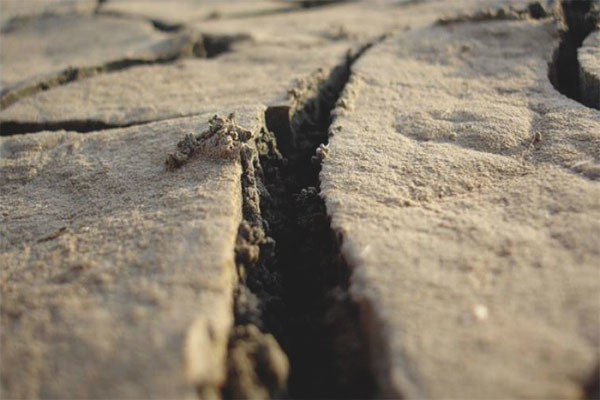
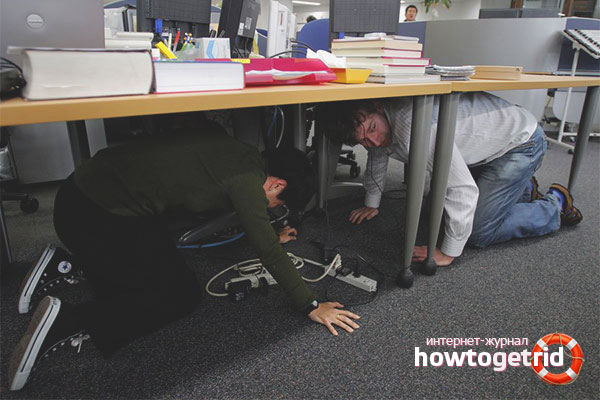
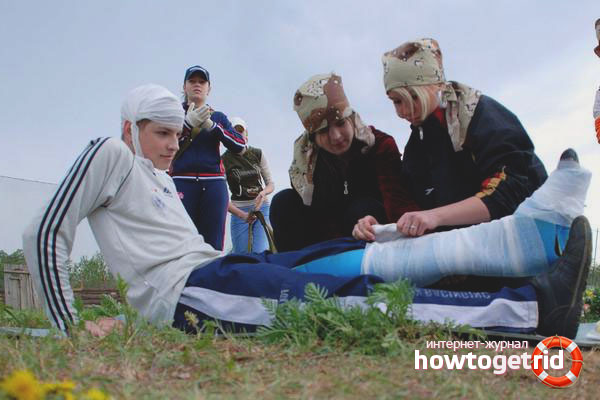
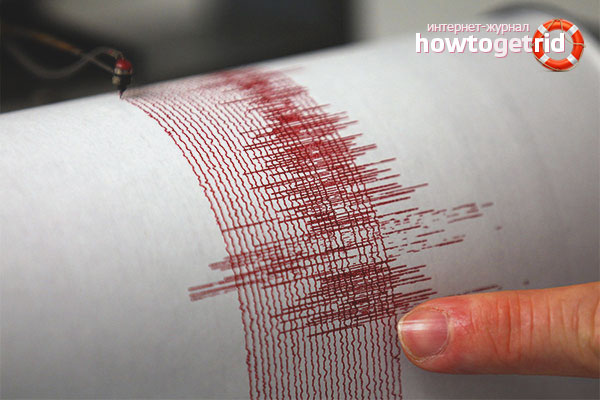






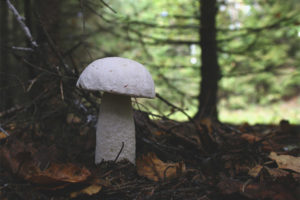


To send